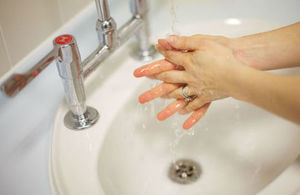Victims of the E coli outbreak have criticised Public Health England for not doing more to publicise the risks of the bug.
A Bournemouth woman who contracted the disease, two mothers whose children were desperately ill and a grandfather of a girl currently seriously ill in hospital have all said PHE was wrong not to tell people about the outbreak.
 A total of 11 people – all Dorset residents or people who have visited the county – have contracted E coli since July, with the latest case being last week.
A total of 11 people – all Dorset residents or people who have visited the county – have contracted E coli since July, with the latest case being last week.
PHE stressed it had thoroughly investigated each and every case but had not been able to find any common source between the cases in July and August.
It said it had not told any of the victims their cases were closed but that activity would have slowed because of the lack of any common factor between cases.
But victims and relatives are still unhappy with the way the PHE has handled the issue.
The grandfather of a three-year-old Blandford girl, currently battling E coli in Southampton General Hospital, said: “Why does it need a newspaper to get involved for PHE to do something?
“They could have let people know about the symptoms and what to look out for weeks or months ago.”
He said his granddaughter had been in theatre for an operation on Wednesday and was now back on dialysis. “We are just keeping everything crossed at the moment. It’s so heartbreaking to walk in and see her hooked up to all these machines.”
Gabrielle Archer, whose son Isaac Mortlock was among the first victims of the current outbreak, said: “I’m devastated to hear that these other children are now suffering and going through the daily blood tests and dialysis that Isaac had to go through.
“I feel that perhaps had Public Health England taken this case a bit more seriously that might not have happened. Had they put it out there and made people aware of the risks and symptoms, perhaps they might be okay.
A spokesperson for PHE said they had been proactive but said this did not necessarily mean engaging with the media.
She said there were always cases of E coli and they were constantly promoting good hygiene as a way of safeguarding against it.
But if PHE doesn’t know what the source is, how can they say they’re constantly promoting good hygiene as a way of safeguarding against it?
A better approach would be: we don’t know, this is what we’re doing to find out more, and you’ll hear it from PHE first.
 Deborah Hardiman of the Shropshire Star writes provisional tests carried out by Public Health England have confirmed that the group who attended the Buckatree Hall Hotel near Wellington on August 7 were struck down by the sickness bug norovirus, which was unlikely to have been spread by hotel staff.
Deborah Hardiman of the Shropshire Star writes provisional tests carried out by Public Health England have confirmed that the group who attended the Buckatree Hall Hotel near Wellington on August 7 were struck down by the sickness bug norovirus, which was unlikely to have been spread by hotel staff.








